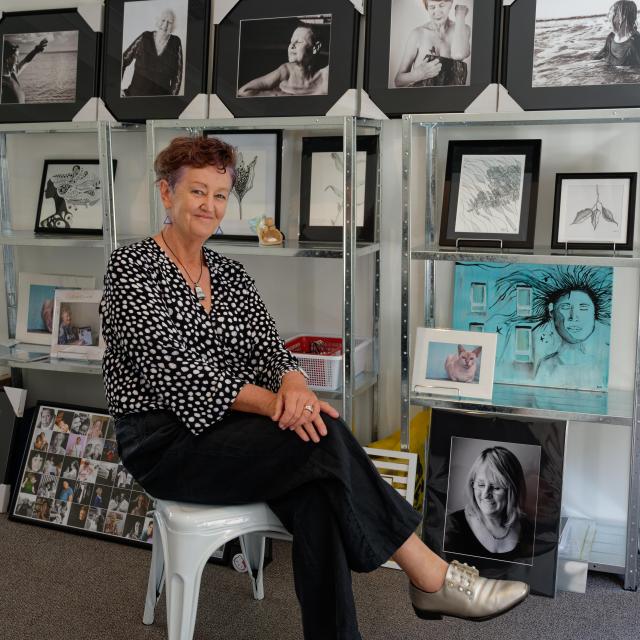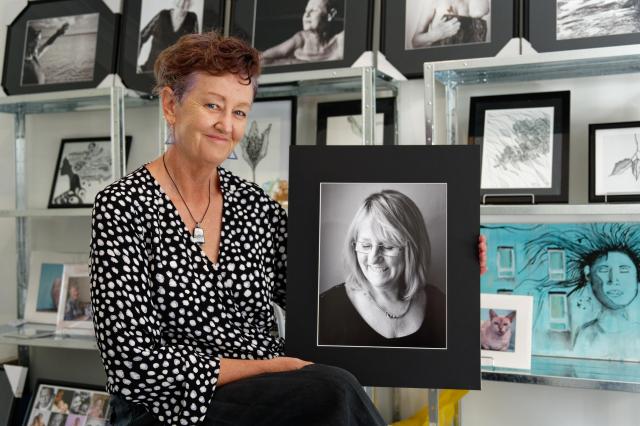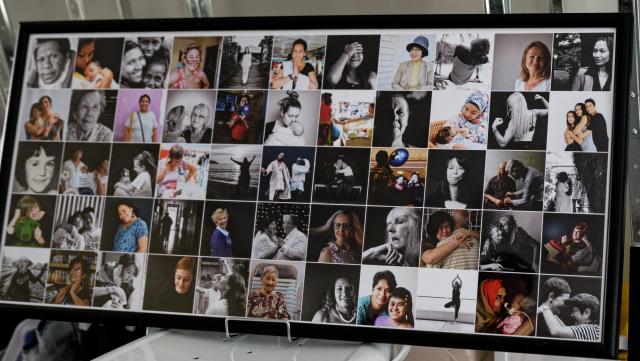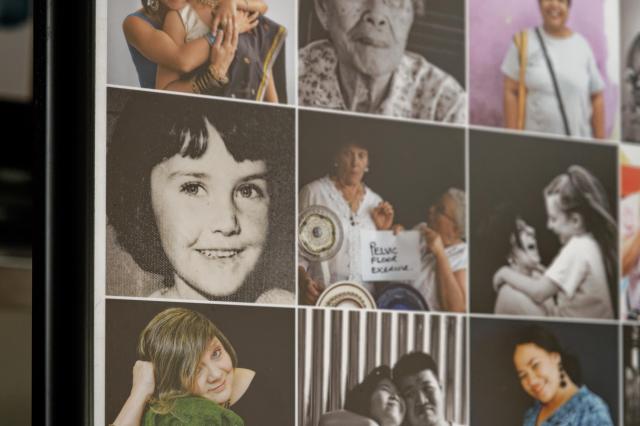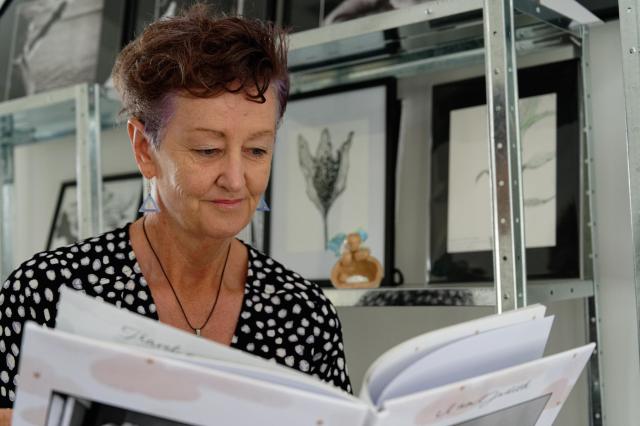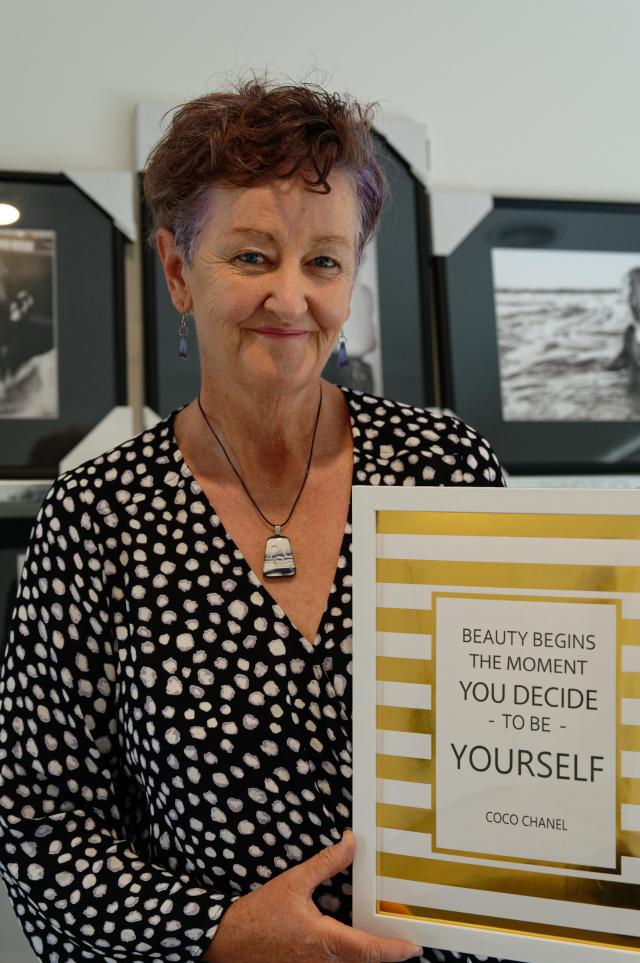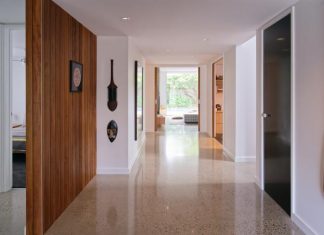Shy and introverted as a child, Kaz Leong was given a camera when she was 10. Along with a career in nursing, it began a journey that has taken her out of her comfort zone. She talks with Justin Flynn.
Where did you grow up?
I was born in Ballarat and grew up in Buninyong.
We came to St Leonards my whole life to the caravan park.
My dad was an itinerant worker and he used to work on the fishing boats here with Dan Rigby. That was a long time ago.
I did nursing training at Ballarat Base.
We moved to St Leonards six months ago.
What got you out of your comfort zone?
I’m a nurse by profession but I got given a camera when I was 10 years old.
I had a country childhood, a little bit lonely – the camera allowed me to meet people.
Then doing nursing, people and care has always been my focus.
Six years ago, I was 51, there was an art residency that came up in Penang (Malaysia).
I took three months long-service leave and I thought I would be lonely and scared, but no not at all. It was just amazing. It was the best time of my life.
I literally discovered myself.
What sort of pictures did you take while you were in Penang?
Street pictures at first. An overwhelming amount of people would say ‘yes’ when I asked them if I could take their photograph.
I printed them and gave them out. So I gave about 450 to 500 photos out to the people of Penang and they looked after me. I could walk the streets and they would toot their horns and wave, give me drinks and cans of beer, even though I don’t drink beer.
What else did you do there?
Because I’m a nurse I volunteered for hospice and photographed the care of the patients and their families. I printed the photos and sent them the photos immediately. One lady had a brain tumor and I expected her to be unconscious, but she was in a bed in her front room in a tiny apartment. It was dark and a housing commission. But she was conscious and alert and we did the nursing part of it and then did the family portraits. She got her photos a few days later and she cried, went into a coma the following day and died a few days later. The images for hospice were so powerful but so beautiful. She was glad that someone had done that for her and her family.
Is it a fine line to take photos of people in hospice and not be exploitative?
All of my work is gratis, so I don’t take any money. I’m always very conscious of the fact that it needs to be done respectfully and with permission from all involved.
So how does a middle aged white woman walk down the street in a predominantly Muslim country and randomly ask if they can take someone’s photograph?
I’ve been all around Malaysia and there are a few places that are a bit harder, but the more developed areas it’s been fine. I also speak Malay, Hokkien, Cantonese and Mandarin. I’m always respectful, dress appropriately. I’m not an expat who is going there to use the place, I have relatives who live there, my husband is from there so I have a connection.
You have been back to Malaysia many times. What else have you done?
I did a solo exhibition called Caring Matters at a cafe in George Town (Malaysia). I photographed people in a family situation, like caring for people in their family with all different types of illnesses.
The opening was upstairs at the cafe and it was quiet and I thought to myself ‘wow, this is too powerful’. And as I walked down the stairs they all stopped in the cafe and I got a standing ovation.
What have you done here in Australia?
I’m currently working on Still Beautiful Bellarine. That’s going to be in March and the work is nearly all done.
I did one in Melbourne in 2019. It’s an exhibition of empowering mature women and reinforcing to them and others that they are still beautiful, still worthy, still loved.
Are women over 50 here in Australia happy or reluctant to have their photo taken?
Women of my age are a bit shy and are not sure. They hold back. I just ask them to trust me and they get a surprise. Don’t forget to tell your mum or your aunty or anyone that you’ve got that they are still beautiful to you.
My mum died when I was 24. As a 24-year-old you think you know the world and you say ‘Mum, don’t ring me all the time’ but I’d give anything for her to be with me.
What makes a good photographer of people?
I definitely learned how to see it all with nursing. My daughter did gymnastics and I judged gymnastics, so when I take photos it’s about emotion, but it’s also a contrast of light, shade and movement. By judging gymnastics for eight years and also as a nurse, you’re a trained observer.
Have you missed going back to Malaysia during the pandemic?
Oh yes. I’m hoping to get back to Malaysia as soon as possible. I have an exhibition in March in Melbourne for International Women’s Day, so I hope to get back there after that.
What’s it like there?
The people have a real generosity of spirit. They will give you anything.
I’ll walk past a lady who is fixing shoes on the side of a six-lane road in the heat and I’ll go and get her a bottle of water and bring it to her because they would do the same for me. You never fall over in Malaysia and just be left. Someone would help. They are very generous.
How did you meet your Malaysian husband?
We met here playing squash in Melbourne. He had just moved here. He studied in Canada and America and then came back and worked in Malaysia and then he migrated here.
Do you have children?
Yes, we have a son and a daughter – a 31-year-old and a 30-year-old.
What advice would you give to a young girl who is in the same situation you were in when you were 10?
I’d tell them to find their passion and run with it. It doesn’t matter whether it’s something small. If you get joy out of it and can inspire others by doing it and set an example, just do it.
What do you do outside photography?
I’ve always been very fit and active. I like walking, bike riding, boogie boarding. I don’t like to sit around and do nothing.

